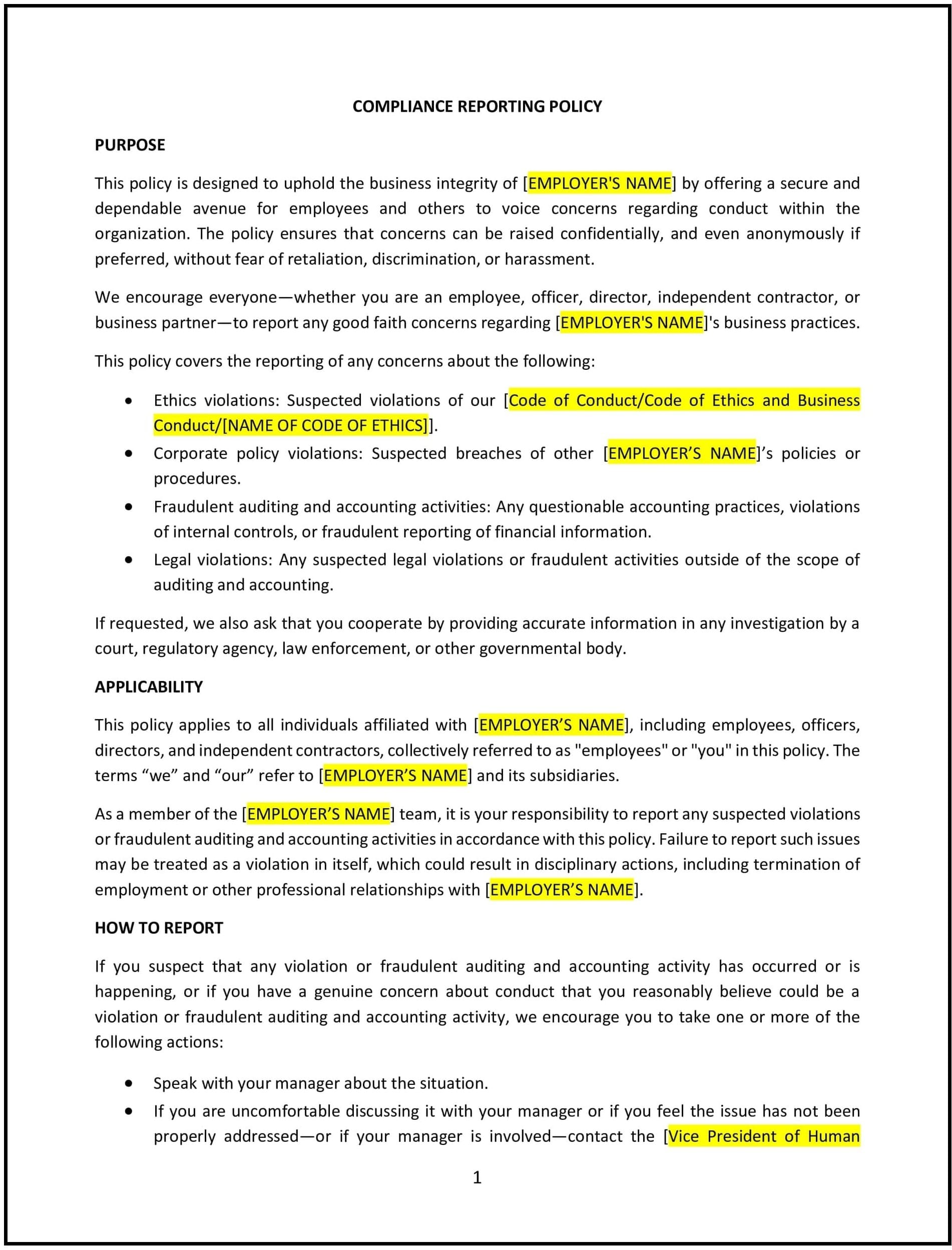Compliance reporting policy (Oklahoma): Free template
Got contracts to review? While you're here for policies, let Cobrief make contract review effortless—start your free review now.

Customize this template for free
Compliance reporting policy (Oklahoma)
This compliance reporting policy is designed to help Oklahoma businesses establish a structured process for employees to report suspected violations of laws, regulations, or company policies. The policy outlines reporting procedures, confidentiality measures, and protections against retaliation to encourage ethical conduct and accountability.
By implementing this policy, businesses can promote transparency, mitigate risks, and foster a culture of compliance.
How to use this compliance reporting policy (Oklahoma)
- Define reportable concerns: Specify the types of issues employees should report, such as fraud, safety violations, harassment, or conflicts of interest.
- Establish reporting channels: Provide multiple options for employees to report concerns, including HR, compliance officers, anonymous hotlines, or online portals.
- Protect confidentiality: Assure employees that reports will be handled discreetly, with information shared only on a need-to-know basis.
- Outline investigation procedures: Detail how reported concerns will be reviewed, investigated, and resolved.
- Prohibit retaliation: Emphasize that employees who report concerns in good faith will not face disciplinary action or retaliation.
- Provide training: Educate employees and managers on their responsibilities in compliance reporting and maintaining an ethical workplace.
- Review regularly: Periodically assess the policy to ensure alignment with Oklahoma laws and best practices.
Benefits of using this compliance reporting policy (Oklahoma)
Implementing this policy provides several advantages for Oklahoma businesses:
- Encourages ethical behavior: Reinforces a culture of integrity and accountability.
- Reduces legal and financial risks: Helps businesses identify and address compliance issues before they escalate.
- Protects employees: Ensures a safe and open environment for reporting concerns without fear of retaliation.
- Strengthens internal controls: Improves transparency and oversight within the organization.
- Reflects Oklahoma-specific business considerations: Aligns with state regulations and industry compliance standards.
Tips for using this compliance reporting policy (Oklahoma)
- Communicate reporting options: Ensure employees know how and where to report compliance concerns.
- Monitor reports and trends: Track reported issues to identify patterns and areas needing improvement.
- Enforce non-retaliation: Take immediate action against any retaliation toward employees who report concerns.
- Provide clear follow-up: Keep employees informed about the status of investigations where appropriate.
- Update policy as needed: Adjust reporting procedures based on regulatory changes and internal feedback.